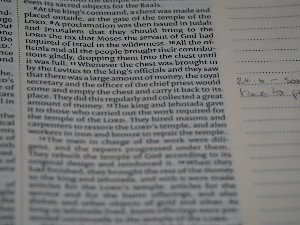Fathur Rozi
Pemikiran Hukum Islam Perspektif Yusuf Al-Qardawi
Introduction
Pemikiran hukum islam perspektif yusuf al-qardawi. Telusuri pemikiran hukum Islam Yusuf Al-Qardawi: elastisitas hukum dan moderasi (wasathiyyah) dalam konteks kontemporer. Analisis ijtihad adaptif untuk tantangan masyarakat modern.
Abstract
Yusuf al-Qardawi's Islamic legal thought is a form of contemporary ijtihad that emphasizes the elasticity of Islamic law and the principle of religious moderation (wasathiyyah). The background of this study is based on the need for Muslims to understand Islamic law in a more flexible context and relevant to changing times. Al-Qardawi proposed a legal approach that is not only based on texts alone, but also considers social, economic, and cultural aspects. The purpose of this study is to analyze the concept of elasticity of Islamic law according to Yusuf al-Qardawi and how this principle is implemented in various aspects of life, such as Islamic economics, family law, politics, and criminal law. In addition, this study also examines the role of moderation in religion as a solution to extremism and radicalism that often arise due to an understanding of Islam that is too rigid or liberal. Previous studies have shown that many studies have discussed al-Qardawi's thoughts from the aspects of Islamic law, sharia economics, and Islamic politics. However, this study focuses more on the integration between the elasticity of Islamic law and the concept of moderation that characterizes al-Qardawi's thoughts. This study fills the research gap by offering a comprehensive analysis of the relevance and application of these concepts in a contemporary context. The research method used in this study is a qualitative method with a descriptive-analytical approach. Data were collected through a literature study of Yusuf al-Qardawi's works, scientific articles, and other relevant secondary references. The analysis was conducted by examining how the concepts of Islamic legal elasticity and religious moderation are applied in various aspects of life. The results of the study show that Yusuf al-Qardawi's Islamic legal thinking has made a major contribution in presenting Islamic law that is more adaptive and relevant to the conditions of modern society. The concept of Islamic legal elasticity that he developed opens up a wide space for ijtihad so that Islamic law remains contextual and provides solutions to the problems of the people. The religious moderation that he promotes is also an important foundation in building a more inclusive and tolerant understanding of Islam.
Review
This paper, titled "Pemikiran Hukum Islam Perspektif Yusuf Al-Qardawi," proposes an insightful exploration into the contemporary Islamic legal thought of Yusuf al-Qardawi, specifically focusing on his emphasis on the elasticity of Islamic law and the principle of religious moderation (wasathiyyah). The study positions itself as a timely and necessary contribution, aiming to address the need for a more flexible and context-sensitive understanding of Islamic jurisprudence in an era of rapid change. By seeking to integrate the concepts of legal elasticity and moderation, the research endeavors to fill a crucial gap in existing scholarship, which often discusses these aspects separately, thereby promising a more comprehensive analysis of al-Qardawi's intellectual legacy. The abstract effectively highlights several strengths that suggest a valuable contribution to the field of contemporary Islamic studies. The explicit focus on the integration of legal elasticity and religious moderation as defining characteristics of al-Qardawi's *ijtihad* is particularly compelling, offering a nuanced perspective on how Islamic law can remain relevant and prescriptive in modern contexts without succumbing to rigidity or excessive liberalism. The proposed examination across diverse domains, including economics, family law, politics, and criminal law, indicates a broad scope that could yield significant insights into the practical application of al-Qardawi's principles. Furthermore, the chosen qualitative method with a descriptive-analytical approach, based on a comprehensive literature study of al-Qardawi's works and secondary references, appears well-suited to the stated objective of analyzing these complex concepts and their implementation. While the abstract presents a strong case for the paper's relevance and methodological soundness, the full manuscript would benefit from providing more detailed insights into certain areas. For instance, clarifying the precise analytical framework used to demonstrate the "integration" between legal elasticity and moderation would strengthen the study's rigor. While the abstract mentions application across various aspects of life, the paper should offer concrete examples or case studies within the body to illustrate how al-Qardawi's principles specifically manifest and resolve contemporary challenges, particularly in countering extremism and radicalism. A critical engagement with potential counter-arguments or alternative interpretations of al-Qardawi's thought, if applicable, could further enrich the discussion, moving beyond a purely descriptive-analytical approach to a more robust academic critique. Nevertheless, the paper holds significant potential to make a substantial contribution to understanding adaptive Islamic legal thought and promoting inclusive religious understanding.
Full Text
You need to be logged in to view the full text and Download file of this article - Pemikiran Hukum Islam Perspektif Yusuf Al-Qardawi from PUTIH: Jurnal Pengetahuan Tentang Ilmu dan Hikmah .
Login to View Full Text And DownloadComments
You need to be logged in to post a comment.
Top Blogs by Rating
The Silent Architect: Unveilin...
By Sciaria
Digitalization: Mastering the...
By Sciaria
Invisible Validators: Unlockin...
By Sciaria
Favorite Blog
Beyond the Stereotype: Unpacki...
By Sciaria
The Universe's Ghost Cities: W...
By Sciaria
Atmospheric Rivers: Unveiling...
By Sciaria





